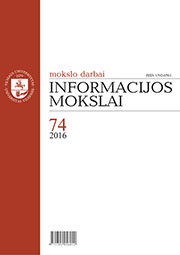Viešojo valdymo ir verslo sektoriaus organizacijų elgsenos ypatumai
Assumptions of organizational behaviour in different organization types
Author(s): Saulė JokūbauskienėSubject(s): Business Economy / Management, Public Administration, Social psychology and group interaction, Organizational Psychology, Management and complex organizations, Social Informatics, Accounting - Business Administration, Human Resources in Economy
Published by: Vilniaus Universiteto Leidykla
Keywords: organizational behavior; public administration; business sector organizations; knowledge management; competence;
Summary/Abstract: The field of information, knowledge society is a wide and complex area. The understanding of organizational values leads from classical economical understanding to knowledge economy concept. The intensity of nowadays society does that extremely important becomes speed and fast but qualified done exercises. As such of importance is the ability to select the required information. In the context of these processes, the creation of knowledge is understandable as a dynamic and long-lasting process. The potential of organizational behavior in problem solving depends on qualified “knowledge workers” and common “organizational competence”. The main idea states that we now need exceptional competences and abilities for the management of digital complexity. Also, the change is of orientation to the management of processes, so the structure is less important. The subject of scientific discussions becomes the system of organizational management and organizational behavior. The assumptions of organizational behavior in different organization types are various. The preconditions of organizational behavior are the evolution of abilities and workers of digital age. The processes organizations are able to get in; it makes them more effective, responsible and gives them a competitive advantage. In the article, the public and private sector organizational types of behavior that mainly affect organizational and individual competencies and cause an effect on the results of activities and motivation are discussed. The economic, political and social changes become a new challenge for the organizations and they may live through the changes by using intellectual capital, reducing procedures, fully using technologies and making up individual motivation.
Journal: Informacijos mokslai
- Issue Year: 2016
- Issue No: 74
- Page Range: 70-81
- Page Count: 12
- Language: Lithuanian

